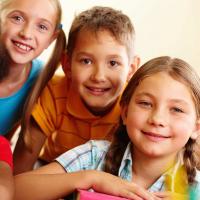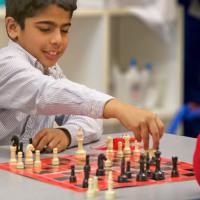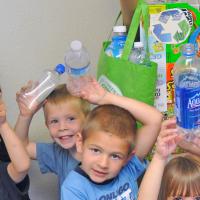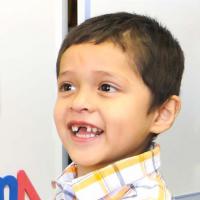Olga Duran's spaces
All Spaces
1st Grade

First-graders extend their knowledge of language arts, learning skills that enable them to read and write more independently. By the end of first grade, students should read proficiently at grade level and have the ability to decode and recognize increasingly complex words accurately and automatically.
2nd Grade

For students in second grade, instruction focuses on developing literacy and proficiency in language arts with the goal that all students become lifelong readers, competent writers, and effective communicators. In mathematics, students become proficient in basic computational skills and procedures, develop conceptual understandings, and become adept at problem solving. Standards-based instruction also includes Science, History-Social Science, Visual & Performing Arts, Health, and more.
3rd Grade

Third grade is often considered a pivotal year as instruction in phonics is phased out of the formal curriculum and emphasis increases on vocabulary acquisition, comprehension strategies, text analysis, language conventions, and writing. A crucial goal is that all students leave third grade able to read fluently, effortlessly, independently, and enthusiastically. In mathematics, third-graders deepen their understanding of place value and knowledge of and skill with addition, subtraction, multiplication, and division of whole numbers.
4th Grade

Traditionally, fourth grade marks the transition from learning to read (in kindergarten through grade three) to reading to learn (in grade four and beyond). There is more focus on academic language as students learn and practice a range of strategies for acquiring vocabulary independently. They read a wide range of literature, study the structural elements of poems, analyze informational text, and learn to use evidence to support points in the text. In Mathematics, fourth graders perform multi-digit arithmetic.
5th Grade

Fifth-grade students read a wide range of materials, including literature from different times and cultures and informational text on grade-level topics in all subject areas. The emphasis is on students’ comprehension of complex narrative and informational texts.
After School
A wide range of after school options are offered, including academic enrichment opportunities, sports, homework help, performing arts and more! Some options are available through our Campbell Union School District Extensions programs, while others are organized by CMS teachers. Details are available from the school office or by contacting the CUSD Extensions Department.
CampbellCare

Safe and Enriching Care
CampbellCare is a high quality, district-run childcare program that is conveniently located right on our school campus.
We take the worry out of childcare by providing a safe and nurturing place for students. Our programs are offered before and after school hours, and are open on teacher in-service days (offsite), and summer (offsite). [Learn More]
More Questions?
Call: 408-364-4200 ext. 6378, ext. 6204 for Spanish
Campus
Forest Hill School, originally constructed in 1962, has been modernized over the years to ensure updated telecommunications, improved energy efficiency, and a spacious school garden for teaching natural sciences and more. The most recent improvements to the campus included thorough renovations of all classrooms, new insulated windows, and construction of a new Campbell Care/Preschool facility.
Community Service

Our students learn the value of giving back to their communities.
English Language Development

English Language Development (ELD) Standards are used in tandem with the Common Core State Standards to give our English Learners (ELs) what they need to acquire language and gain access to grade-level standards. The California Department of Education requires that ELs receive explicit ELD instruction (Designated/Dedicated ELD Instruction), grouped by proficiency level. ELs also need access to grade-level standards. CUSD teachers use research-based instructional strategies proven to be effective in helping ELs meet grade-level content.
Family Involvement
Even in elementary school, we’re preparing students to succeed in high school, college and beyond. Research shows that involvement by parents and family members makes a big difference in a child’s success at school. You Make the Difference!
